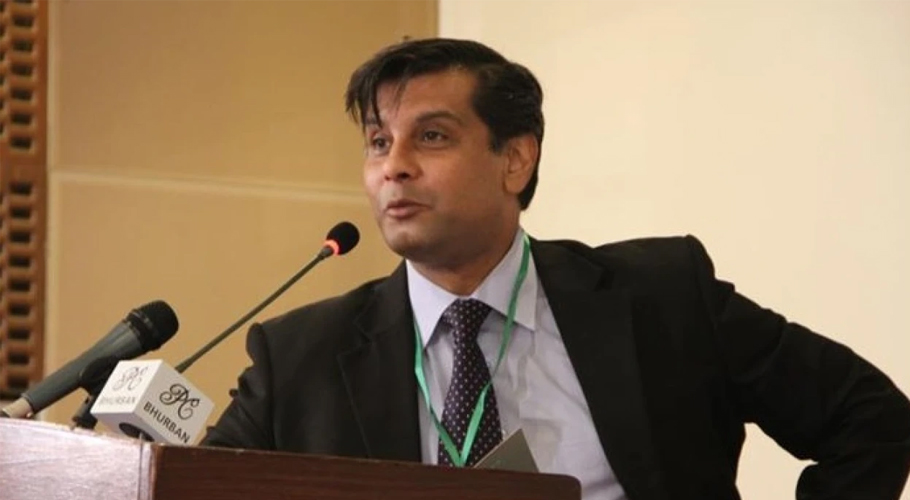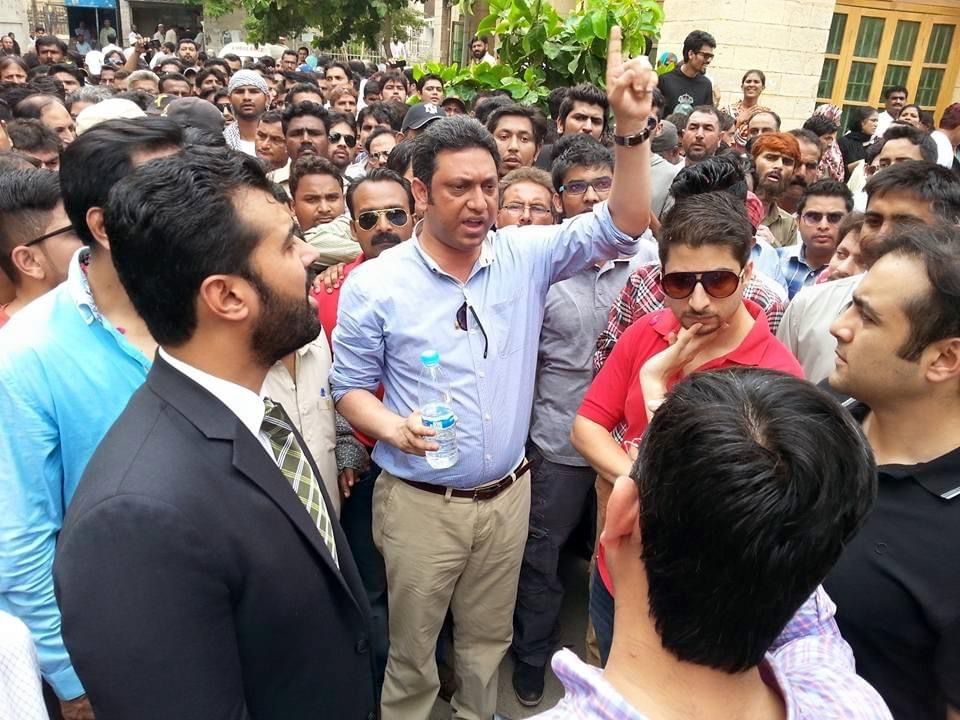Resilient, brave & resolute: The struggles of one man for the Freedom of Press in Pakistan
Shazia Mehboob
Islamabad: With the International Day to End Impunity for Crimes against Journalists approaching on November 2, another journalist becomes a story.
The brutal murder of journalist Arshad Sharif in Kenya has shaken the media fraternity and human rights organizations across Pakistan, further adding weightage to the concerns that journalists have time again raised on their safety and security. The question remains the same – what is the point of forming commissions and launching “transparent inquiries” for appearance’s sake when they never bear any results?
Only a week ago, President BOL TV Faysal Aziz Khan had welcomed Arshad Sharif to the BOL Network family. “He had joined the Network but remained out of country due to constant threats,” said Khan, remembering the late journalist. He also recalled doing the same for Imran Riaz Khan, Jameel Farooqui and Sami Abraham during times when they had growing pressure and threats.
“We issued a press release stating that BOL Network will not be pressurized into firing its members,” he added, “though the channel was being punished for airing criticism of the government”.
Khan is a renowned journalist and has served in several media organizations. He has been vocal against attacks on journalists in Pakistan throughout his career and currently serves as President and Chief News Officer of one of the leading news channels in the country – BOL News.
The journalism community is known to face roadblocks and unprecedented attacks in their work including intimidation, harassment, assault, detention, arrest, abduction, and even death.
“I was called ‘traitor’ by an ‘unknown man’ for supporting my wounded colleague – veteran journalist Hamid Mir – who sustained three bullets in a gun attack near Karachi airport in 2014,” said Faysal Aziz Khan, who has been observing rampant attacks in the recent times on freedom of speech.
The 49-year-old journalist has been associated with BOL Media Group since the very beginning and stood with the organization through thick and thin.
In 2013, the media group was launched with highly integrated marketing in the midst of a controversial fake degree scam on its parent company Axact, which turned a spotlight on the media house. The company once promised higher market remunerations and made headlines on all the leading channels.
The perks and benefits of joining were a major attraction for all the bigwigs of the industry. But, with the controversy hovering over the media house, the boat was abandoned before it could even set sail. The network experienced an exodus during testing times.
Khan, who then joined the organization as Vice President, traced the financial transactions of the company and decided to stick with the channel, fighting for the fate of hundreds of employees associated with the channel.
With a hard-hitting struggle of over two years by Khan, challenging the propaganda on legal and national forums that guarantee media impunity, BOL News finally launched its transmission in December 2016 and started regular broadcasting.

The award-winning journalist has been described as an “unsung hero” who fights for journalism beyond any interest. Khan’s colleagues say that “critical thinking” and “revolutionary integrity” are inseparable parts of his personality.
Attacks on the press have increased by over 40% in a single year with the federal capital Islamabad emerging as the “riskiest” place for journalists in Pakistan, Freedom Network – a media watchdog – said in its annual press freedom report published in May 2022. Sindh was highlighted as the second most dangerous place with 23 attacks, while Khyber Pakhtunkhwa was reported as the third worst province with 16 violations.
During the late hours of August 21, 2022, Islamabad-based journalist Jameel Farooqui was arrested from less than a kilometer away BOL News headquarters in Karachi while returning from his show. “For a long period, I was under the impression that I was being kidnapped for ransom but later found it was an arrest,” Farooqui said.
“I was tortured in custody. I was tied up and kept blindfolded for over 12 hours,” he added. Farooqui was arrested for “falsely” accusing Islamabad police of “physically and sexually assaulting” Dr Shahbaz Gill, former prime minister Imran Khan’s Chief of Staff, on his YouTube channel.
The next day (Aug. 22), police took the journalist to Karachi airport on transit remand, taking him to Islamabad. Farooqui found Khan at the airport “looking for someone.”
“I later got to know that he [Khan] was looking for me [Farooqui] after booking six flights on that day,” he said. “He got the tip that they [police] are taking me to Islamabad.”

The TV anchor who hailed Khan as his “brother” says if he hadn’t been there, nobody would have known what happened with him.
Since the start, Khan stands strong beside his colleagues in the legal battle in different cases including senior journalist Sami Abrahim and BOL Network’s founder Shoaib Sheikh.
Over a two-decade-long career, Khan’s association with several media organizations, including Jang and Geo, got international recognition for his critically-acclaimed investigative reports, be it on Karachi’s underground economy – Karachi Ka Kala Budget – or a multinationals kidnapping case by Somalian pirates – MV Albedo.
From politics to the mafia, investigative journalism has underlined many territories which no one touches.
The media fraternity has always found Khan on the front advocating the social rights of journalists and offering opportunities to enhance their skills. As a Strategic Advisor to the Presidential Initiative for Artificial Intelligence and Computing (PIAIC), he launched several revolutionary innovative programs including Artificial Intelligence and Block Chain Computing (BCC).
Fighting for the rights of television journalists and their professional training, Khan formed the Association of Television Journalists (ATJ) in 2008, making them part of the journalist community as the shift from print to television journalism was reluctant in different press associations in the country. ATJ, however, later became the part of Karachi Press Club.

In 2010, Khan served as the General Secretary of the South Asian Free Media Association’s Sindh wing. He has been awarded Pakistan Excellence Award (2017), Best Investigative Journalism (2013), Pakistan Media Award (2011), Best IT Journalist Award – Singapore (2002), and Best reporter (1999).
During his career, Khan himself faced death threats for his insightful reports, exposing the loopholes in administrative, political, and economic policies. “The fight is forever,” says Khan who has pledged to stand for the rights of journalists, their social safety, and their life till his last breath.

Comments are closed.